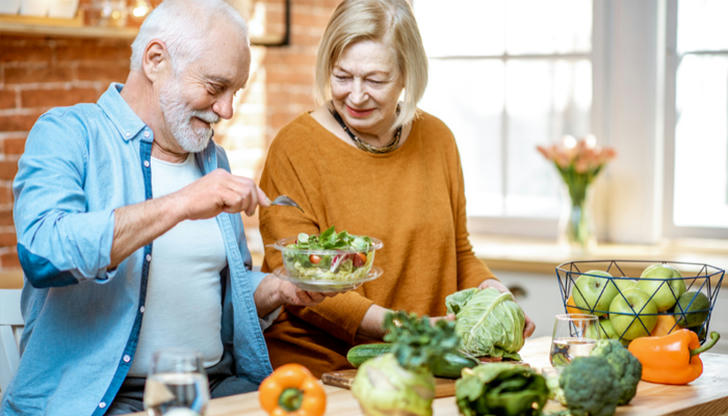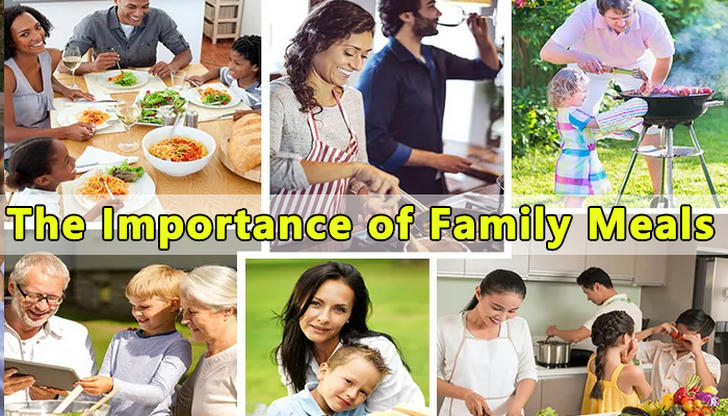Connecting Over Cuisine: How Shared Meals Strengthen Bonds with Family and Friends
Food is more than just fuel for the body—it’s a powerful connector of people. The act of sharing a meal has been ingrained in cultures across the world for centuries, offering a chance to bond, communicate, and create lasting memories. Whether it’s a family dinner, a gathering of friends, or a special holiday feast, shared meals are an essential part of human connection. In this article, we’ll explore how sharing food strengthens bonds between family and friends, not just by nourishing our bodies but also by nurturing our relationships and emotional well-being.

1. The History and Cultural Significance of Shared Meals
Meals have long been a central part of human culture and tradition. Across the world, food has served as a symbol of hospitality, community, and togetherness. From the cozy family dinners in Italian homes to the communal dining practices in Middle Eastern countries, shared meals have a deep cultural significance.
For example, in the United States, Thanksgiving is a day dedicated to sharing food and giving thanks with family and friends. In many Asian cultures, large family meals are a time to bond and show respect for one another. The act of cooking and sharing food together is seen as a ritual that strengthens familial and social ties.
Throughout history, food has also played an important role in celebrations and rituals. Weddings, birthdays, and religious ceremonies often revolve around shared meals, as the act of eating together symbolizes unity and happiness.
2. The Emotional and Psychological Benefits of Sharing a Meal

The emotional impact of sharing a meal cannot be underestimated. When we eat together, we build emotional connections, trust, and intimacy. The presence of loved ones during meal times creates a sense of safety and belonging, which leads to stronger relationships.
Studies have shown that sharing meals as a family or with friends can reduce stress and anxiety. It provides a time for people to relax, unwind, and enjoy each other's company, free from the distractions of work or technology. There’s something calming about sitting down to a meal with others, creating a moment where the pressures of life seem to melt away.
Moreover, shared meals help create positive, lasting memories. Whether it’s a holiday dinner or a casual weekend barbecue, the meals we share with family and friends often become treasured moments that we reflect on fondly, reinforcing the emotional bonds we share.
3. Shared Meals and Better Communication
When we sit down to a meal with others, we are also sitting down to communicate. Shared meals encourage conversation, offering an opportunity to catch up, share stories, and engage in meaningful dialogue. Unlike quick, distracted eating, mealtimes offer space for active listening, empathy, and connection.
Meals can also break down barriers, allowing for easier communication between different generations, cultures, or social groups. A shared meal creates a common ground, where differences fade and connections deepen. Conversations flow naturally over food, allowing people to express themselves and connect on a deeper level.
In our fast-paced, technology-driven world, shared meals provide a much-needed time for face-to-face interaction. By setting aside time to eat together, we prioritize quality time with those we care about, strengthening our relationships in the process.
4. Building and Maintaining Relationships Through Cooking Together

It’s not just about eating together—it’s also about preparing food together. Cooking with family and friends is a great way to bond, foster teamwork, and create shared experiences. Whether it’s chopping vegetables, stirring a pot, or grilling on the barbecue, cooking together strengthens relationships through collaboration and creativity.
Preparing meals together also offers opportunities for learning and teaching. Parents can pass down family recipes, or friends can introduce new dishes and techniques. These moments not only build stronger bonds but also preserve traditions and create a sense of shared history.
The act of cooking can also be a form of care. When we prepare meals for others, we show love and affection, making them feel valued and appreciated. This reciprocal care strengthens relationships and promotes a sense of belonging.
5. Shared Meals and Their Impact on Health and Well-being
Eating together doesn’t just have emotional and social benefits—it also has physical advantages. When people share meals, they are more likely to make healthier food choices. Preparing meals at home allows families to choose fresh, nutritious ingredients and avoid processed foods. This can lead to better overall health and improved eating habits.
Social support is another crucial factor in health. Sharing meals with others provides a sense of community, which is essential for mental and emotional well-being. Studies have shown that individuals who regularly share meals with family or friends tend to have lower levels of stress and better mental health.
Additionally, when we cook together, we are more likely to engage in mindful eating. We take the time to enjoy the flavors, textures, and aromas of the food, rather than eating in a hurry or while distracted. This not only enhances the dining experience but also helps with digestion and encourages healthier eating patterns.
6. Tips for Creating Memorable Shared Meals

If you want to make your shared meals even more special, consider these tips:
Incorporate Traditions: Bring in family or cultural traditions to your meals, whether it’s a special holiday dish or a favorite recipe passed down through generations. Traditions help create a sense of continuity and connection.
Create a Welcoming Atmosphere: Set the table with care. Add candles, music, or a centerpiece to make the meal feel special. A warm and inviting atmosphere makes the meal feel more intimate and memorable.
Meal Planning for All: When hosting a shared meal, consider everyone’s dietary preferences and restrictions. By offering a variety of options, you ensure that everyone feels included and cared for.
7. The Long-Term Impact of Shared Meals on Relationships
Regular shared meals have a lasting impact on relationships. Over time, they create a foundation of trust, love, and support. Families who eat together regularly tend to have stronger bonds and better communication skills. These meals provide a chance to check in with each other, celebrate achievements, and support one another through challenges.
Shared meals also create a sense of shared history. As you gather around the table year after year, you accumulate a collection of memories that strengthen the family or friendship bond. These experiences become cherished stories that are passed down to future generations.
Conclusion
Meals are not just about food—they are about connection. Sharing a meal with family and friends is a simple yet powerful way to strengthen relationships, build trust, and create lasting memories. Whether it's a special holiday dinner or a regular family gathering, the act of eating together nurtures emotional, psychological, and physical well-being. So, next time you sit down to a meal, remember that it's not just about satisfying hunger—it's an opportunity to connect, communicate, and create bonds that last a lifetime.
